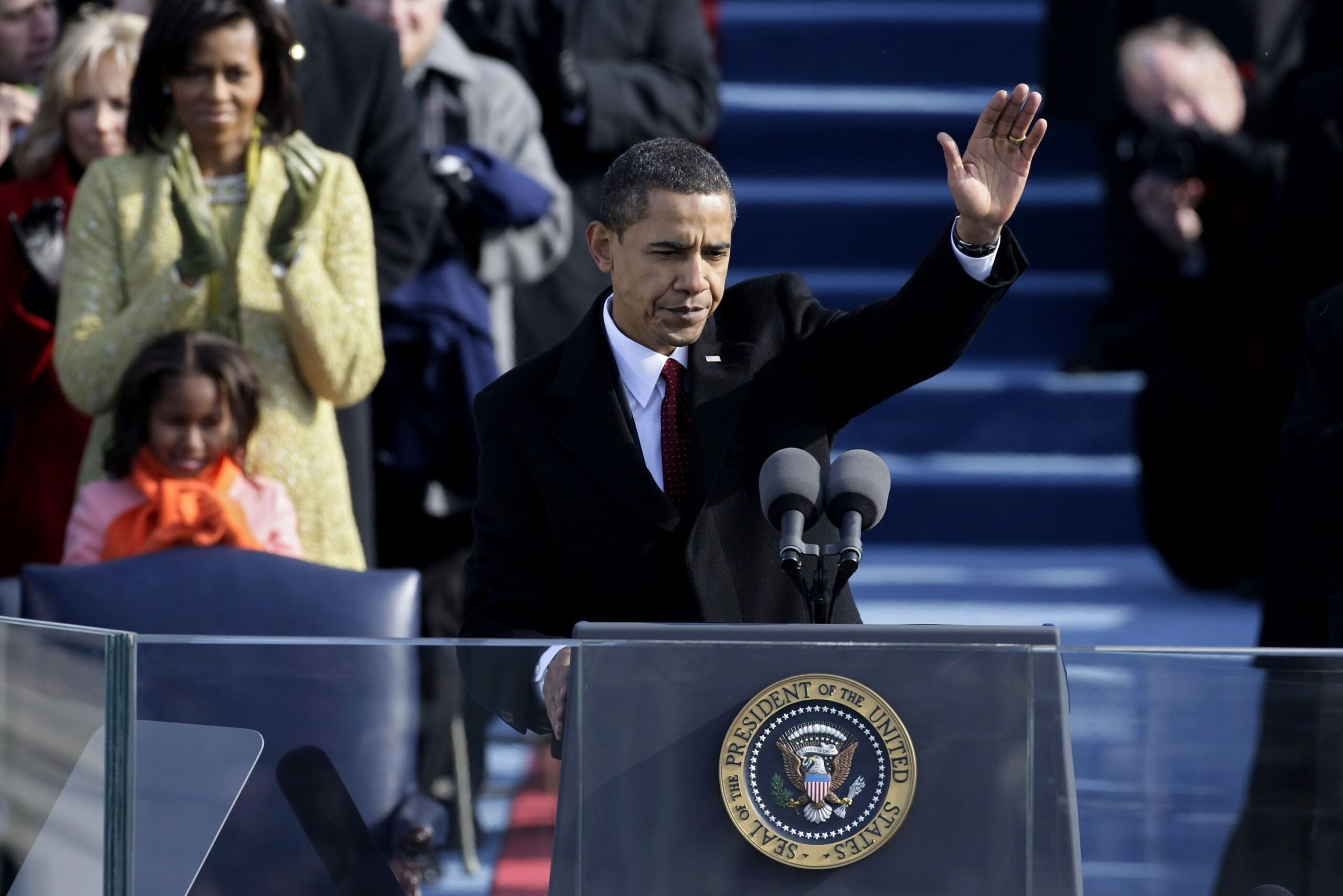On a frosty winter morning in Washington, DC, Elizabeth Alexander, a distinguished author and poet, was roused from her sleep by an unusual sound. From her hotel room window, she observed a throng of people, braving the cold, making their way towards the National Mall. The date was January 20, 2009, and these individuals were on their way to witness the inauguration of Barack Hussein Obama, the first Black president of the United States. The sound that woke Alexander was the synchronized footsteps of the crowd, which she likened to a “growing rumble of thunder or a crashing wave.”
Alexander was a special guest of Obama’s, having been asked to compose and recite a poem for his inauguration. As she took the stage, she found herself in the company of dignitaries such as Muhammad Ali, Aretha Franklin, Elie Wiesel, John Lewis, and Colin Powell. As she recited her poem, “Praise Song for the Day,” she was inspired by the sight of the multicultural crowd that stretched as far as the eye could see.
Today, we mark the 15th anniversary of Obama’s first inauguration. Despite the relatively short span of 15 years, the event feels as if it occurred in a different era, in a different America. On that day, the United States seemed to have finally realized Rev. Martin Luther King Jr.’s dream of reaching the “Promised Land.” However, the years that followed saw the rise of “Make America Great Again,” deepening racial and political divisions, and the storming of the US Capitol on January 6, 2021. This prompts us to question whether the hope that was felt on January 20, 2009, was merely a fleeting illusion or a glimpse of a multicultural America that can still be realized.
The optimism of Obama’s inauguration was set against a backdrop of economic devastation caused by the Great Recession, the impending collapse of the American auto industry, and the country’s involvement in two seemingly unwinnable wars. Yet, for many in the crowd, the mood was one of jubilation. This jubilation was echoed around the world, with people in countries as diverse as Russia, Japan, and Kenya cheering as they watched the ceremony on TV.
However, the belief that America’s diversity is a strength has been challenged in recent years. Some Americans, including former President Trump, have suggested that the country’s mix of races, ethnicities, and immigrants is a weakness. This shift in perspective raises the question: How many people in a post-January 6 America still believe in the strength of diversity?
Despite the challenges and changes over the past 15 years, some who were present at Obama’s first inauguration still believe in his vision of America. They argue that the story of America is still being written and that the hope and unity experienced on that day were not a mirage but a reality that can be reclaimed.
As we look forward to another inauguration day in January 2025, we are left to wonder whether the nation will move past the “old hatreds” and dissolve the “lines of tribe,” as Obama hoped in his inaugural speech. For many Americans, these lines have only deepened. However, for those who experienced the “open-mouthed joy” at Obama’s first inaugural, the belief in a united and diverse America remains strong.

